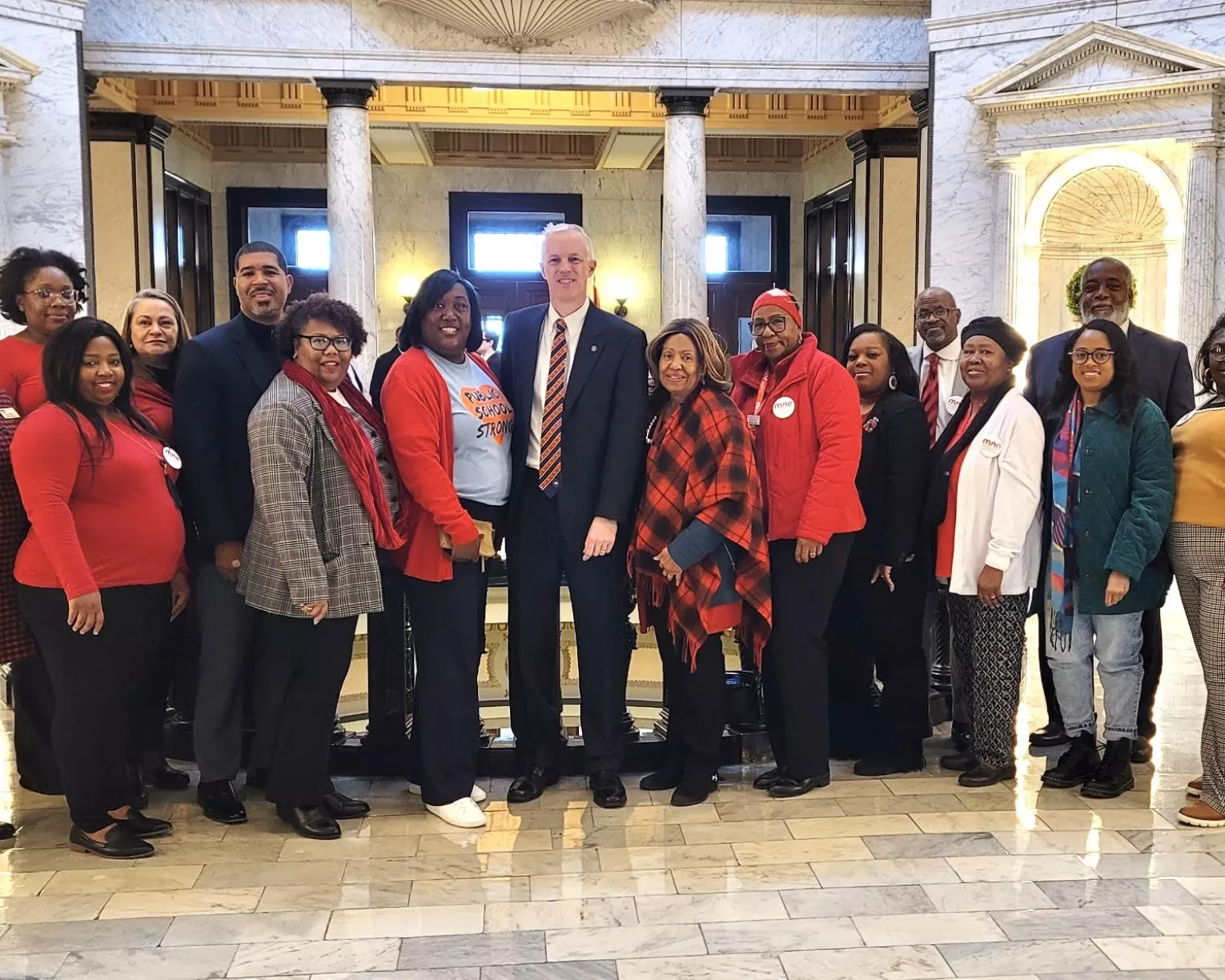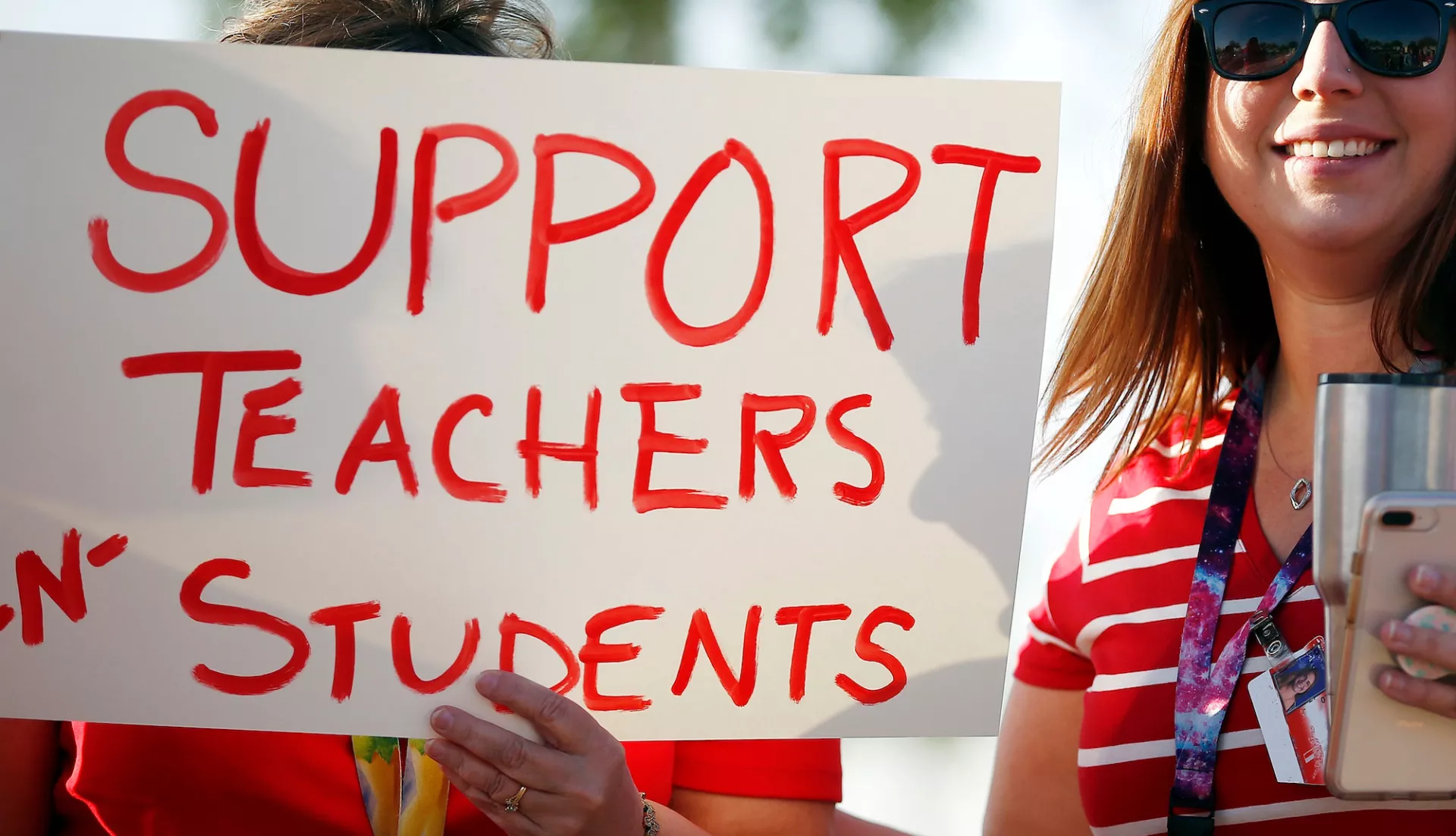
Key Takeaways
- According to public opinion surveys, parents have a high level of confidence and trust in their children's teachers and schools in their community.
- That hasn't stopped right-wing lawmakers from attempting to sow distrust between parents and schools by imposing book bans and curriculum restrictions—all under the guise of "parents rights" and "transparency."
- NEA is urging educators across the country to speak out against the Parents Bill of Rights Act (HR 5) currently being debated in the House of Representatives.
From June 2021 through July 2022, book bans were imposed in 138 school districts in 32 states, affecting nearly 4 million students in more than 5,000 schools. That staggering number has likely increased in the past seven months, and it will only get worse if Congress soon decides to join forces with book ban proponents.
That could happen with passage of a bill that would not only accelerate censorship in schools, but also strip educator autonomy in curriculum decisions and impose a federal mandate that would severely weaken community voices in school decisions.
The bill’s supporters call it a “parents bill of rights,” another example of the deceptive but familiar ploy of using popular, digestible labels to disguise unpopular and destructive schemes. This bill, introduced in January, is now being debated in the House of Representatives and will have a floor vote later this week.
The “Parents Bill of Rights Act” (HR 5) contains a list of provisions already ensured by local and state law, including, but not limited to, a parent’s right to view a school’s budget or speak at a public school board meeting.
Kevin McCarthy (R-Calif.) hinted at the bill's more troubling provisions in his first speech to the chamber as Speaker of the House in January. McCarthy vowed to put an end to “woke indoctrination in schools,” a clear signal that right-wing lawmakers in Washington supported the onerous “gag orders” and book bans their counterparts at the state level are inflicting on educators.
That’s an agenda that is intended to drive a wedge between parents and their children’s school, not foster constructive and inclusive parent engagement, said NEA President Becky Pringle.
Instead of ensuring all students, no matter their race or background, have the chance to succeed, Pringle said, “McCarthy would rather seek to stoke racial and social division and distract us from what will really help our students thrive: an inspiring, inclusive, and age-appropriate curriculum that prepares each and every one of them for their future.”
What Parents Don’t Believe In
Across the country, educators in every district are collaborating and engaging with parents on every facet of their children’s education—one of the many reasons why parents have trust and confidence in teachers and their schools.
Educators and parents are focused on the same things. According to a Navigator survey released in March, parents' top education priorities are making sure their children learn what they need to be successful, keeping them safe from gun violence, and protecting their mental health. These findings mirror an earlier NEA poll of 2022 election voters. Both surveys revealed that parents are largely not concerned with having enough of a “say in what their kids are learning.”
Here’s what most parents do not support: whitewashing U.S history, censoring topics in the classroom, and banning books. According to a 2022 survey by the American Library Association (ALA), 74 percent of parents of public school children expressed “a high degree of confidence” in school librarians to make good decisions about which books to make available to children. The survey results, said ALA President Patricia Wong, “confirm what we have known and observed: that banning books is widely opposed by most voters and parents.”
Additionally, a 2022 poll by National Public Radio found that 76 percent of parents said their child’s school does a good job of keeping them informed about the curriculum, including potentially controversial topics.
Yet a well-funded and well-organized network of groups claiming to represent public school parents has spent the past two years stoking division and manufacturing outrages over classroom curricula and materials. Ultimately, the goal is to drain parental support of public education, destabilize the system, and clear the path for privatizers to steer hundreds of millions of dollars in public money away from public schools and students to for-profit enterprises.
These book bans and gag orders have been marketed as a "parent bill of rights," or "transparency" in schools.
In fact, what they actually have amounted to, says Jonathan Friedman of PEN America, is a “radical surveillance of teachers” designed to help sow distrust and chaos in school systems across the nation.
Used this way, Ben Hodge, a high school teacher in York, Pennsylvania, recently told Education Week, “parents' bill of rights,” is just a Trojan horse.
“At least in my experience, teachers have always been able to be accessible to parents, and I don’t know what these parents’ rights bills will do other than give more power and pathways to things like book banning and elimination of resources,” Hodge said.
Us-Versus-Them Mentality
These so-called "parents' rights" laws have already been approved in a handful of states, with Florida leading the way. Signed by Gov. Ron DeSantis in 2022, the Parental Rights in Education Act gives a green light to right-wing groups and lawmakers to remove books about people of color, civil rights, and LGBTQ+ rights from school libraries. Other states, including Texas, Tennessee, North Carolina, and Missouri, have passed, or are close to passing, similar censorship laws.
For educators and parents, the prospect that this destructive agenda, advanced by a small but very vocal minority, could be codified at the federal level is chilling.
In a March letter to Congress opposing the Parents Bill of Rights Act, currently being considered in Congress, NEA Government Relations Director Marc Egan wrote, “Instead of bringing us together to focus on what will really help students—an inspiring, inclusive, and age-appropriate curriculum that prepares them for the future in schools that are safe from gun violence—this approach encourages parents to view educators as the enemy....This us-versus-them mindset hurts students [and] disregards educators’ professionalism.”
At a time when too many educators are leaving the profession, politically motivated attacks on their classroom autonomy and their profession will send even more toward the exits.
“[HR 5] tells teachers, school counselors, librarians, and other school professionals that despite their education, expertise, experience, and dedication to their students, they cannot be trusted to work with parents and their communities to determine what materials are appropriate, how to design curricula that meet students’ needs, nor how to ascertain students’ progress.” — NEA letter to Congress, March 7, 2023
But parents and educators haven't been standing still. They have teamed up in many states to mobilize against these divisive policies and for policies that actually help students, in the process spotlighting what real, authentic parent partnerships and engagement looks like.
“Educators are beyond frustrated that some lawmakers would rather ban books and deny students an honest education than work to meaningfully help our students thrive,” NEA President Pringle said. “Now is the time to nurture a great relationship between parents and educators and fulfill the promise of an inspiring, inclusive, and age-appropriate curriculum in a safe and welcoming public school.”
Learn More






